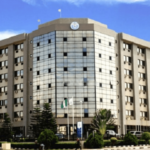Nigeria’s inflation rate declined to 22.97% in May 2025, marking a second consecutive monthly drop, according to the National Bureau of Statistics (NBS). This represents a significant fall from 23.71% in April 2025 and a sharp year-on-year decrease from 33.95% in May 2024—a drop of nearly 11 percentage points.
The easing of inflation reflects slowing price increases across multiple sectors. On a month-on-month basis, inflation also decelerated, coming in at 1.53% in May 2025 compared to 1.86% the previous month. Meaning that while prices are still rising, they’re doing so at a slower rate.
Urban inflation stood at 23.14% year-on-year, falling from 36.34% a year earlier, while rural inflation dropped to 22.70% from 31.82%. However, urban areas saw a slight increase month-on-month, rising to 1.40% from 1.18%, while rural inflation fell sharply to 1.83% from 3.56%.
Food inflation, often a key concern for Nigerian households, saw notable improvement. The year-on-year food inflation rate fell to 21.14% in May 2025 from 40.66% in May 2024—a 19.52 percentage point drop. Nonetheless, food prices increased slightly month-on-month to 2.19%, reflecting slower reductions in staple food prices like yam, cassava, maize flour, and fresh pepper.
- Advertisement -
Core inflation, which strips out volatile food and energy prices, also eased to 22.28% in May, down from 23.39% in April and 27.04% in May 2024.
Analysts have attributed the improvement to exchange rate stability, reduced fuel prices, and modest drops in key food prices in cities like Lagos and Abuja.
The naira appreciated slightly in the NAFEM window, easing import costs. However, risks remain due to insecurity in food-producing regions and early flooding that threatens crop production.
According to experts this downward trend is expected to continue, provided current macroeconomic policies remain effective and external shocks are limited.










